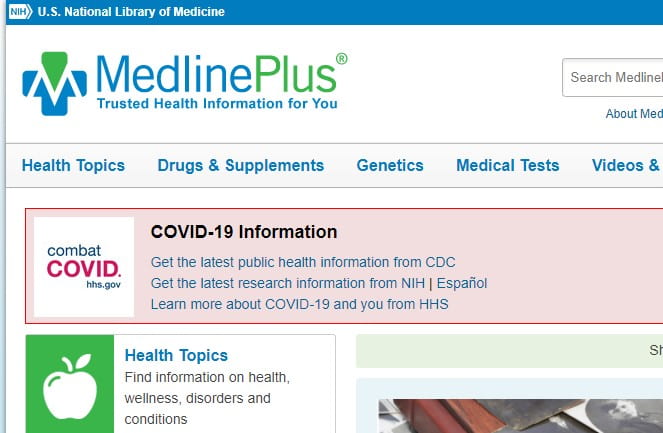
When people ask if I use TikTok, I respond with an unconventional reply: only for research purposes. While the wording I use is intended to be humorous, I’m actually telling the truth. I downloaded TikTok in grad school to study misinformation on social media during the height of the Covid-19 pandemic, and to this day, I use it to see what misinformation is spreading online.
Before I get into specifics, let me be clear that TikTok is not the only source of misinformation on the internet or even the worst. It’s hard to gauge how much misinformation spreads from platform to platform, and it’s my personal belief that every social media site has its own misinformation problem that expresses itself in different ways. The problems I see on TikTok can be seen everywhere from X to Meta. But given TikTok’s popularity, it seems best to focus on that platform.
Back to TikTok. To give readers a taste of what I’m talking about, here is a smallsampling of the type of videos I got on TikTok just last week:
- Claims that eating a type of seed leads to living over 100 years old and never getting cancer
- Claims that using a type of veggie powder in your drink can improve your heart health, a powder the video creator also sells
- The claim that teeth can heal themselves and that dentists are lying to you to gain money
- Promotion of a crash diet that claims to cure all diseases
Needless to say, these health claims are false. If there were a type of seed we could eat that would lead to perfect health, we’d all know about it. But I bring up this type of content not to debunk it, but to ask an important question: why do people believe in these kinds of claims? Most of this content is easily disproved, and some of it has been debunked for decades – take the claim one does not need glasses, for example (Klee, 2023).
The answer to that question is multifaceted. Since the study of misinformation became more popular, journalists and scientists alike have theorized why some health claims, no matter how ridiculous, still manage to go viral. History has also offered some insights; given the long history of quackery, there are plenty of examples to pull from.
Here are some reasons why these ideas continue to be popular:
- Lack of Health Literacy: Health literacy is something that one has to learn. When you lack health literacy, you can be more susceptible to believing outlandish health claims.
- Cost of Health Care: Health care is expensive, especially if you lack insurance. When you can’t afford recommended treatments, fringe medical ideas can be more appealing if they don’t break the bank.
- They Confirm Our Biases: Claims that back up biases we already have can be particularly enticing. If I love fresh strawberries and see a post claiming fresh strawberries help treat an illness, I’m more likely to buy into the idea.
- Negative Experiences with Healthcare: When you have negative encounters with healthcare, alternatives become more appealing, especially when they validate feelings that were previously dismissed (Boyle, 2022)
- Feeling Anxious/Lacking Control: It’s scary to feel out of control of your own health. Many scams promise that their products offer control over your body, which can be very tempting (Nan, 2022).
One thing I want to draw attention to is what isn’t included on this list: lack of intelligence. While health literacy does help one spot misinformation, it does not provide immunity: some of the biggest spreaders of Covid-19 misinformation are medical professionals (Bond, 2021). No amount of factual knowledge makes us immune to fear, bias, and other emotions that drive the uptake of health misinformation.
So how do we avoid misinformation? Remaining skeptical is always a good place to start, as well as being aware of one's own biases. As for combating misinformation on a wider scale, teaching health literacy, assisting individuals with high healthcare costs, and improving patient experiences are all ways to start.
In the meantime, let us all take the health information we hear online with a grain of salt we can only see if we keep wearing our glasses.
Bond, Shannon. “Just 12 People Are Behind Most Vaccine Hoaxes On Social Media, Research Shows.” NPR, 14 May 2021. NPR, https://www.npr.org/2021/05/13/996570855/disinformation-dozen-test-facebooks-twitters-ability-to-curb-vaccine-hoaxes.
Boyle, Patrick. “Why Do People Believe Medical Misinformation?” AAMC, 3 Nov. 2022, https://www.aamc.org/news/why-do-people-believe-medical-misinformation.
Klee, Miles. “‘You Do Not Need Glasses’: A Wellness Coach’s Bogus Claim -- And Its 100-Year History.” Rolling Stone, 18 Sept. 2023, https://www.rollingstone.com/culture/culture-features/wellness-coaches-wearing-glasses-false-claims-1234822624/.
Nan, Xiaoli, et al. “Why Do People Believe Health Misinformation and Who Is at Risk? A Systematic Review of Individual Differences in Susceptibility to Health Misinformation.” Social Science & Medicine, vol. 314, Dec. 2022, p. 115398. ScienceDirect, https://doi.org/10.1016/j.socscimed.2022.115398.
Robson, David. “Why Smart People Are More Likely to Believe Fake News.” The Guardian, 1 Apr. 2019. The Guardian, https://www.theguardian.com/books/2019/apr/01/why-smart-people-are-more-likely-to-believe-fake-news.
Robson, David. “Why Smart People Believe Coronavirus Myths.” BBC, 6 Apr. 2020, https://www.bbc.com/future/article/20200406-why-smart-people-believe-coronavirus-myths.



